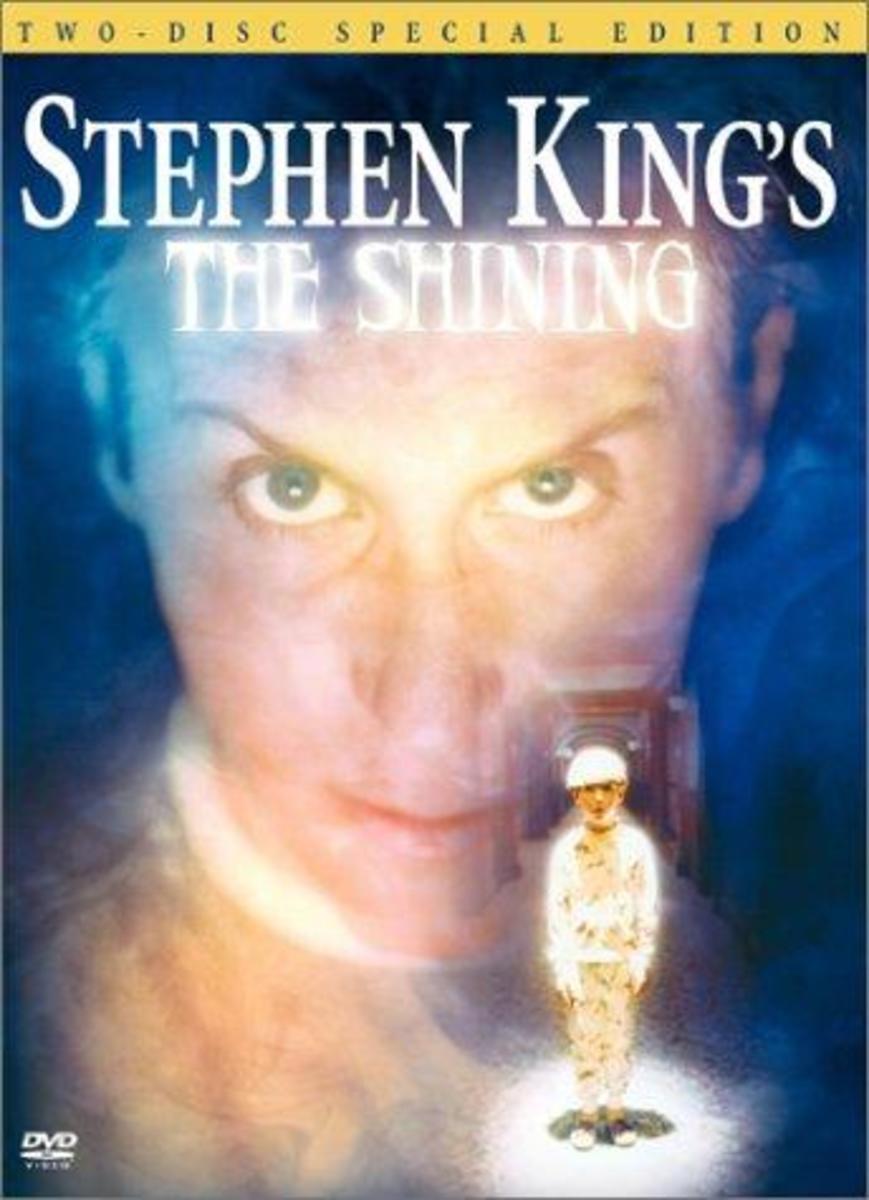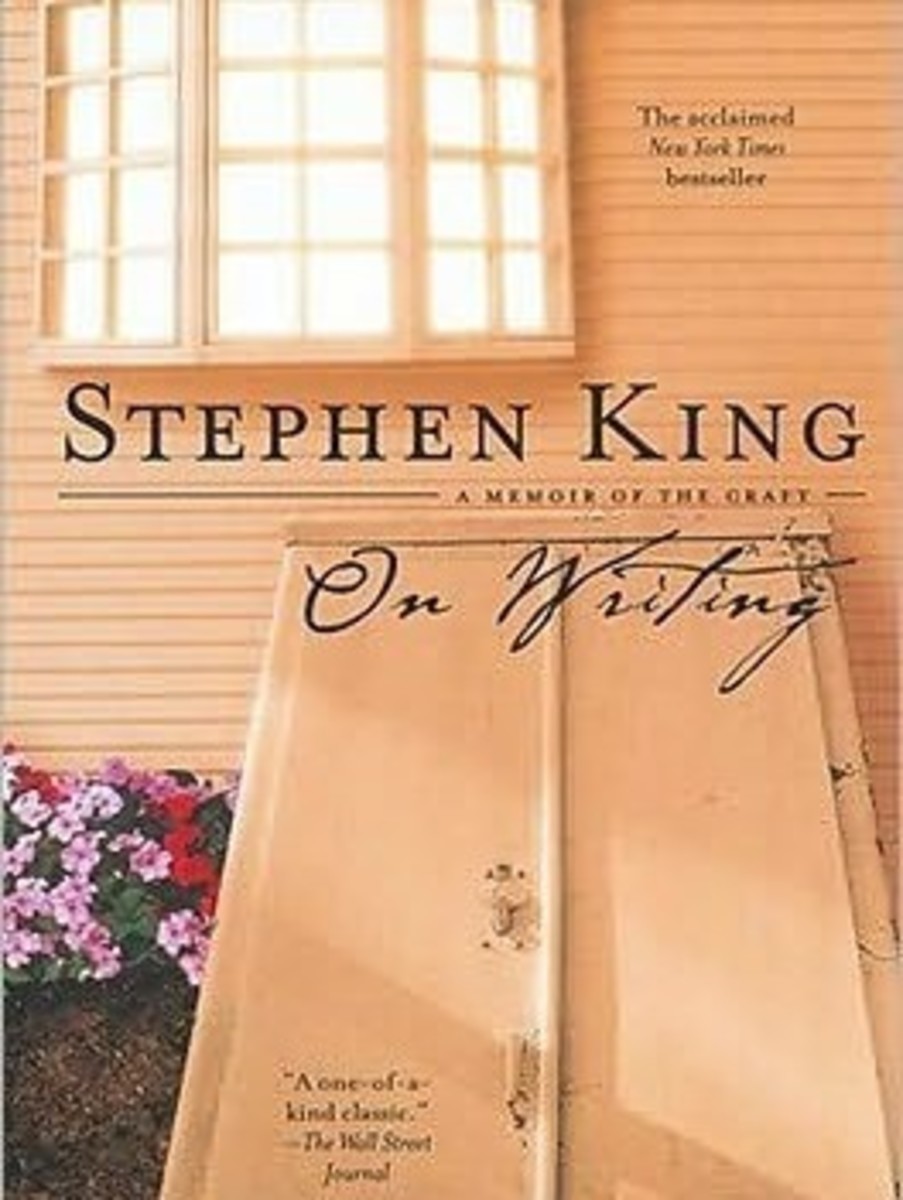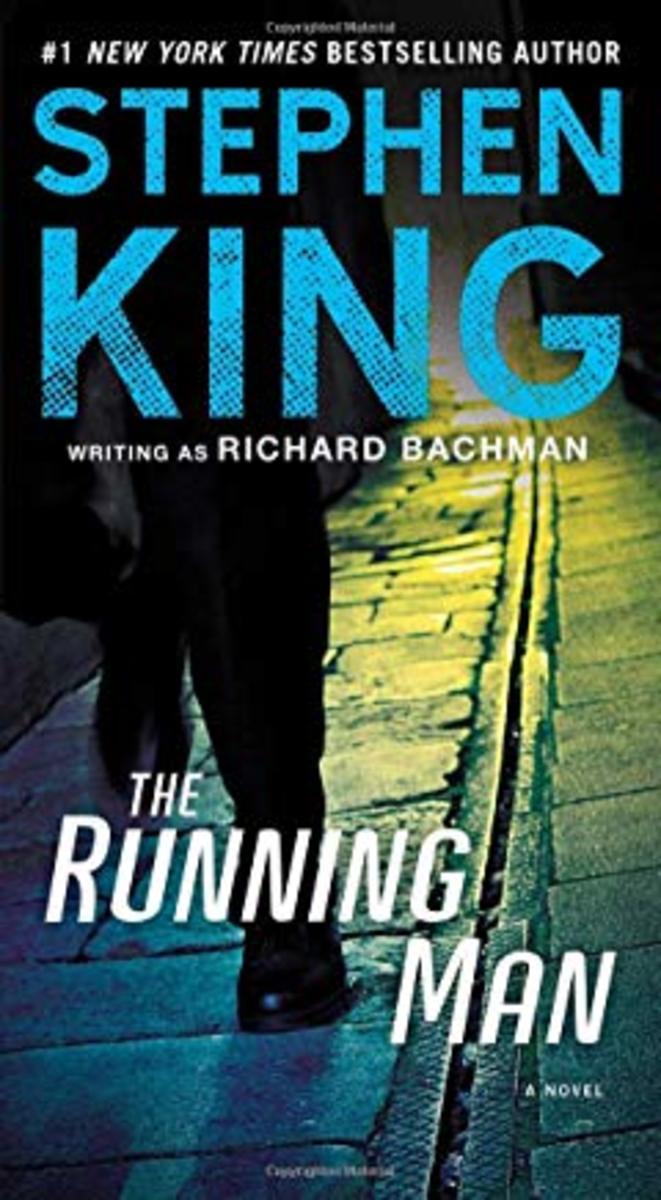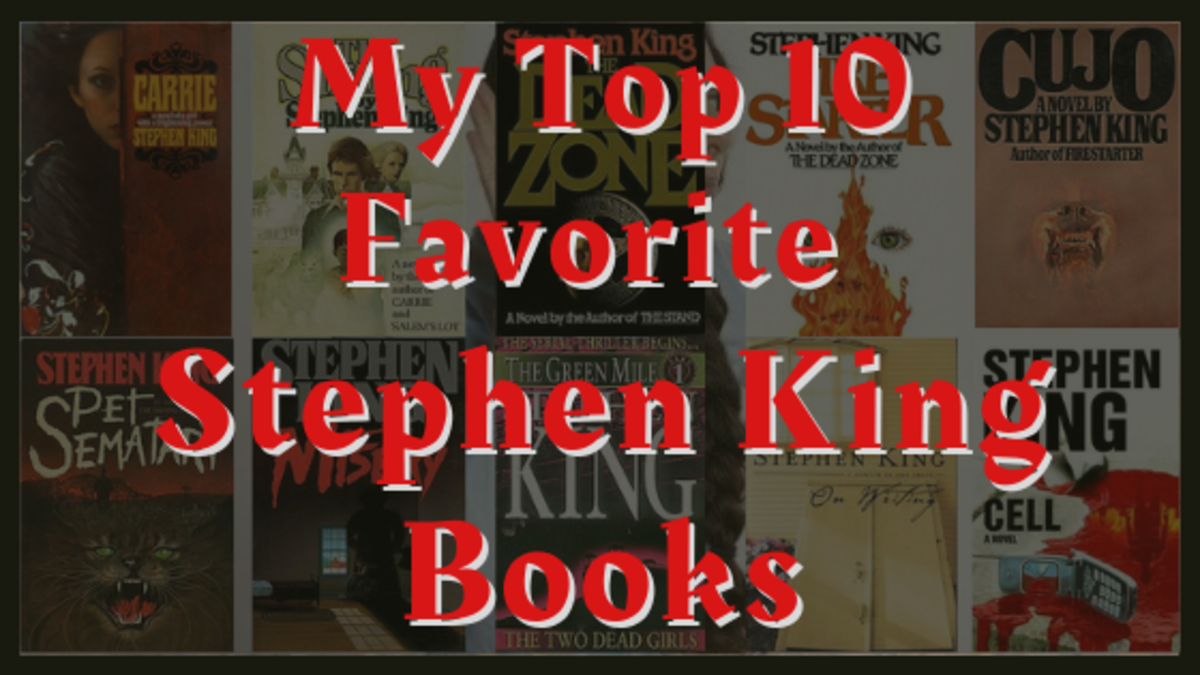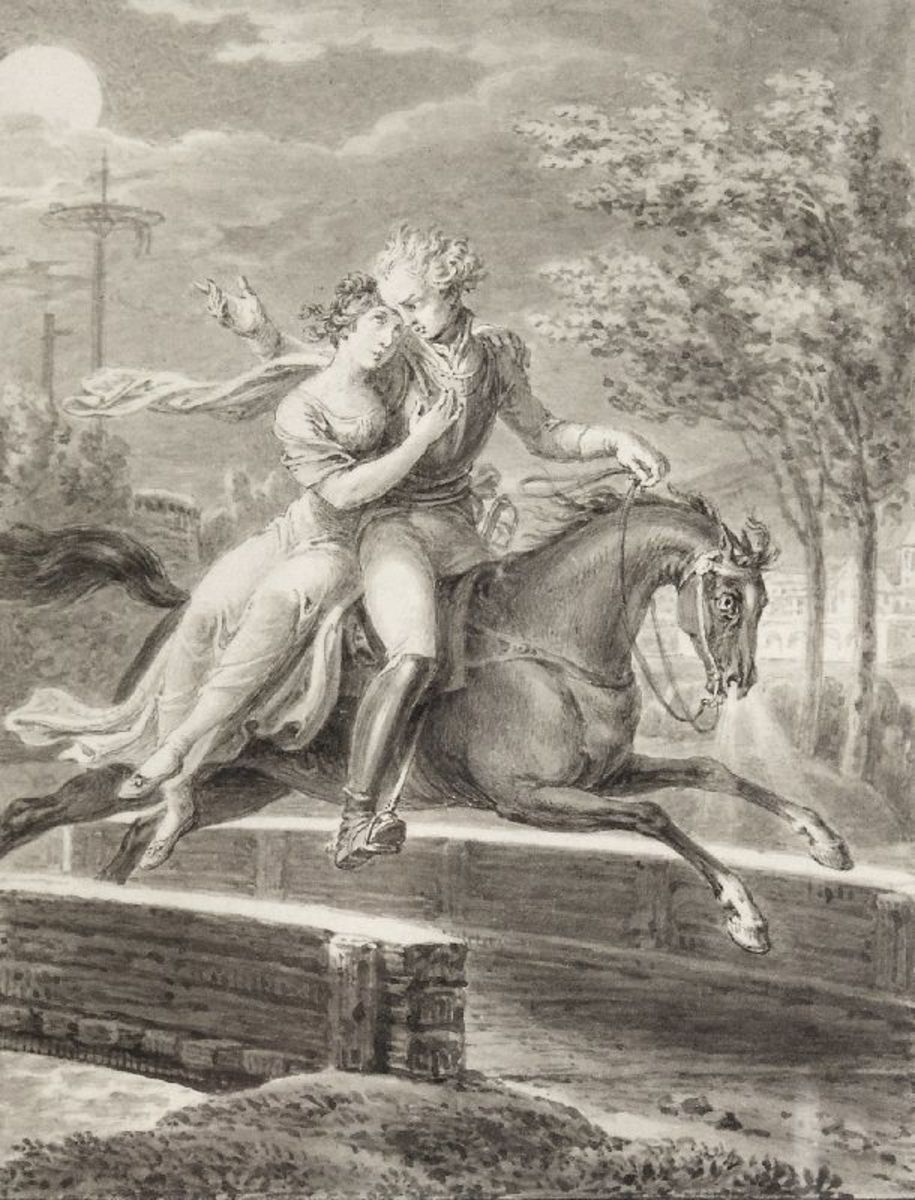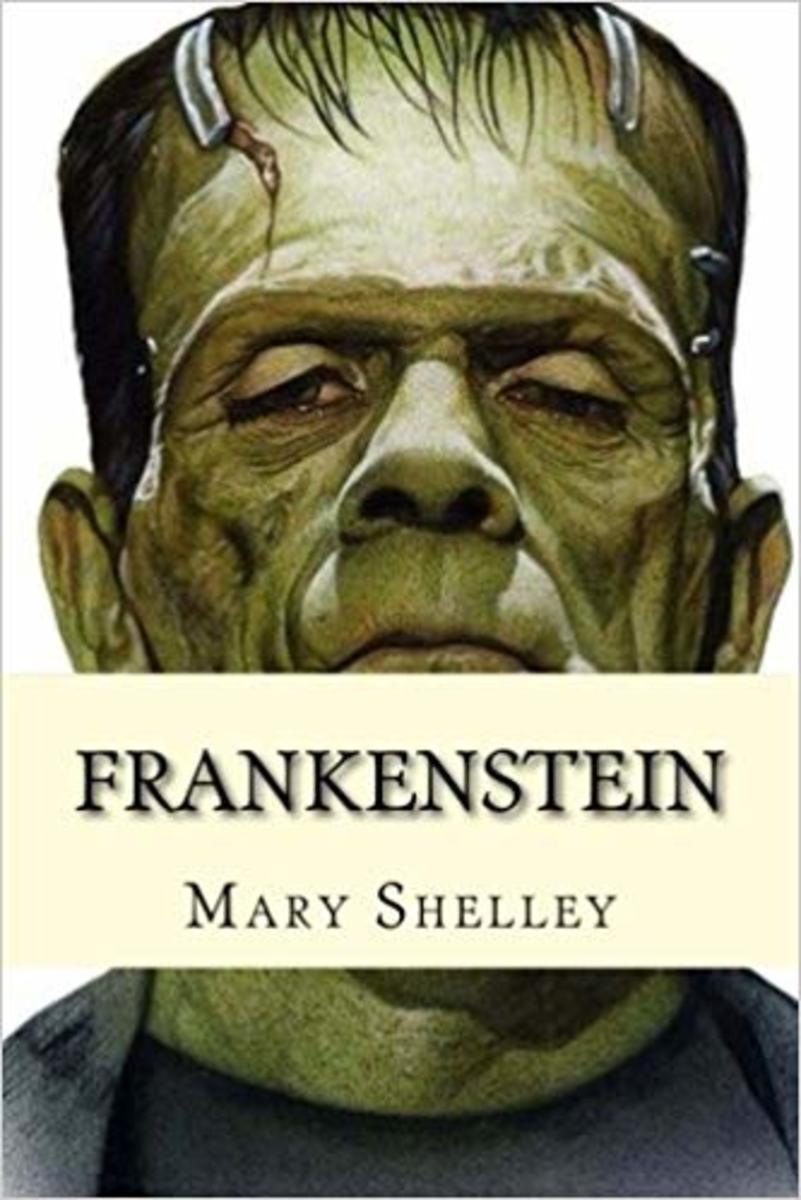- HubPages»
- Books, Literature, and Writing»
- Books & Novels»
- Fiction»
- Science Fiction & Fantasy Books
The Stand by Stephen King: A Book Review
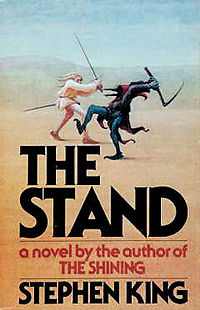
Today we're going to look at a novel called "The Stand," by that prolific horror novelist, the very Godfather of the genre, Stephen King. First of all, let me say that the version I am holding in my hand is paperback; it is the complete and uncut version (there had previously been an original version with 400 pages of material cut out); and the book was published by Anchor Books, first in 1978 and then again (the updated version) in 1990. Also let me note that the version we're considering is 1439 pages.
As I said, for some of you that may not be familiar with Stephen King's work: this book is a horror novel, which, crudely put, means that its goal is to "scare" you; however, then again, the 'fright' factor may be more obviously operative in the cinema, that is to say, when such books are adapted for television and movies, which, incidentally, so much of Mr. King's material has been (which means that you may be more familiar with his material than you think, even if you have never read a single one of his books).
So, The Stand, like most of King's work is a 'horror' story meant to 'scare' you. What I find---and what is, perhaps, obvious---is that I am not nearly as jumpy reading horror fiction as I would be watching the book adapted to either the big or small screen; the 'thrills and chills' just seem to come at one un-contextualized and seemingly sudden, 'out of nowhere,' as it were, making for instant 'shock value,' if you know what I mean.
Anyway, the story is this: Ninety-nine percent of the world's humanity have been wiped out by Superflu, a U.S. government experiment that, obviously, got way out of control. The survivors are the ones who are, inexplicably, immune to it.
The task before the survivors, then, is to rebuild civilized society. Two different kinds of prototypical communities form around two opposing forces. Mother Abagail, a 108-year-old black woman, who may or may not be a prophetess of God calls some people to restart society in Boulder, Colorado.
Then there's her opposite number, one Randall Flagg the 'Dark Man' or 'Walkin Dude' (he has many names). He is not Satan himself, but something very much akin to the Father of Lies, and who may or may not have once been at least partially human.
The Horror Genre
There's just one or two words I want to say on this. For those of you who may not be familiar with this genre, let me just say that it strikes me that the interesting thing about horror is this: This is the one genre, perhaps, that on a regular basis calls for unconventional heroes. That is to say that salvation is achieved through use of capacities found in kinds of people who are usually overlooked, to put it mildly, in our society.
What I'm trying to say is that horror presents the good guys with problems and adversaries that cannot simply be sorted out by the good-looking, buffed up guy or even gal who can shoot up, slice up, or karate up the appropriate parties. Perhaps some of that will be required; but in the main, it is the person in the wheelchair or the deaf mute or the blind person or the mentally retarded person who has critical capacities or abilities and/or knowledge which is necessary to defeat the evil of a supernatural dimension.
If I'm not making myself clear, let me say that I find this to be a good thing. Horror allows for more heroic "diversity." Stephen Kings The Stand is no exception to this principle.
The Oil-and-Water Principle
There is something I call the Oil-and-Water Principle. This term is my own, but still, I find that when a piece of fiction (be it a story, movie, or television show) violates it, we have a, let us say, discouraging piece of work on our hands.
With any genre fiction that involves alien beings, supernatural forces, super-powered beings of some kind, or anything like that we have the meeting of what I call two worlds. First, there is the world of us ordinary human, mortals, who have no super or supernatural powers; we know nothing of ghosts, goblins, witches, or anything like that; aliens from other planets, dimensions, or the far distant future are unknown to us.
But in any kind of genre fiction where these elements are introduced, a kind of problem presents itself: What to do about the ordinary human, mortals.
Take the movie trilogy The Matrix. In my opinion, the trilogy is an artistic failure, largely because of the fact that ordinary people seem to only exist to be terrified canon fodder. We see no participation from them ("us") in the great battle of good and evil that goes on around them, that they and their world is host too. Do you follow me? The Hellboy movies have that same problem.
Put another way: oil and water don't mix, as they say. So it is with the Matrix trilogy and Hellboy movies; the "oil" of the super-powered and supernatural do not mix at all with the "water" of the Earth and ordinary, human mortals---so that the latter only exist to be terrified canon fodder.
Do you remember the television series based on young Superman (Ka-lel) called Smallville? This show does not commit this infraction! In fact, this show did something quite brilliant, in my opinion. If you recall, here's how it established the fact that ordinary Earth mortals would not exist only as terrified canon fodder.
Remember the story was set up in such that when Ka-lel came to Earth as an infant in that rocket, this created ecological shifts in the environment of the town of Smallville such that anyone is liable to develop super-powers at any moment. Do you follow me? In other words, baby Superman's rocket was like the seed and the town of Smallville was the garden bed, if you will; and a crop is constantly being harvested (by this I mean certain citizens of Smallville suddenly developing super-powers).
Anyway, The Stand does not commit this infraction. The superflu has opened the door to a new world, kind of new way of being in which the surviving part of the human species, as a whole, has been enhanced; that is human perceptions have been enhanced and deepened. But there are those whose gifts make them, in certain peculiar ways, mystics. This is aside from the power of the Darkman or Mother Abagail. I am simply saying that we do not have a situation in which Mother Abagail, prophetess of God, perhaps, and Randall Flagg, the Devil's own are fighting their fight, wielding their supernatural forces while everybody else just tries to hold on or find a place to hide or something like that. We don't have "oil and water," but different substances that are more mixable.
The Length of the Novel
Let me just say a word about this. Mr. King says in the introduction that he is "a writer who has been accused over and over again of having diarrhea of the word processor." He writes long novels, is what that colorful criticism seems to be saying.
Here's the thing about the complete and uncut version of The Stand. I don't think its too long. In fact, given the enormity of what has happened in the plot, it can even be considered somewhat concise. Remember we're dealing with the near death and rebirth of the entire world. We talking about a reality in which more than ninety-nine percent of the human population has been killed by the virus. We're talking about the ways the world changes for the survivors. All of that is a big deal and demands enough space to deal with that respectfully. A mere five-hunded page tome would have been an insult; not a fitting memorial, at all, for all those who died; and not a fitting tribute to how the survivors have to literally restart not just procreation but the idea, forms, and content of civilization itself.
I think the length is appropriate here and I wouldn't have minded it being even longer or going to another installment entirely as well. It is even appropriate, in my opinion, that we spent more time with Mother Abagail's people in Boulder than we did with Randall Flagg's people in Las Vegas. That is because the former are trying to rebuild representative democracy, which is messy; and Flagg's community cannot be bothered with such trivialities.
Just let me say one more word on this and I'll move on. As I said before, there was a time when this novel was originally published with four hundred fewer pages. Let me say that if you decide to read this novel, I recommend that you read the complete and uncut version only.
First of all, Stephen King did not initiate the original surgery. In the introduction he explained that "[t]he cuts were made at the behest of the accounting department," not the editorial department.
But it seems what was originally cut out was not just words and text but real richness. For example, should you read this complete and uncut version of The Stand, you will meet a maniac who only calls himself The Kid. The Kid hooked up briefly with an intriguing and tragic character who calls himself Trashcan Man.
Now, the part concerning The Kid was originally cut out. On the surface, this may seem quite unimportant to the story and had been well away the first time around. But you must attend more closely because his appearance on the scene, in Trashcan Man's path, and his eventual disposal adds important perspectival richness about the modus operandi of Randall Flagg.
You see, Trashcan Man is one of those souls who feels himself "called" to join the side of Flagg: "My life for you," he declares over and over again, and so forth. The Kid is a blowhard who thinks he's going to takeover the operation after a while. He's going to lay low, observe how things work, and then, when the time is right, make his move and takeover the top spot for himself, "kicking the Dark Man, Randall Flagg, to the curb, as it were.
All you have to do is spend five minutes with this guy to understand that the very notion is preposterous. But he and the Trashcan Man ride together for a little bit; and he torments "Trashy" all the way there.
Flagg delivers his loyal servant, Trashcan Man ("My life for you") from the clutches of The Kid, who, at one point, commits an unspeakable violation of his somewhat unwilling traveling companion. Just how Flagg delivers Trashcan Man, I will keep to myself, because I don't want to give away too much of the plot.
Here's the point: Trashcan Man gives a prayer of thanks to Flagg for his deliverance. But the narrator intervenes to make the reader suppose, just suppose, that perhaps, the Dark Man had put The Kid in Trashcan's path to start with, so that Trash's devotion would be enhanced when Flagg destroyed The Kid. This adds richness and subtlety to the characterization of Flagg, if you know what I mean. It certainly adds richness and subtlety to perceptions of the character of Flagg.
This episode helps us understand the kind of villain Flagg is, apart from his existential nature. He likes to toy with the people in his clutches, give them hope of freedom and escape, only to pull the rug out from under them.
Anyway, this episode and the narrator's commentary on it, helps to prepare us for the unique way that Flagg operates: like the time his people caught a spy from the other side; he spoke to her so reasonably, tried to convince her that the two sides were not, in fact, at war, and that, therefore, there would be no reason to take drastic measures. He had ordered a motorbike to be gassed up and ready for her to drive back to Boulder; he had given her maps marking out the territory of his people; he had urged her to tell her people not to send spies, saying that if they wanted to know something about his community, that it would perfectly alright to send people openly; and so on and so forth, yada, yada, yada, as Jerry Seinfeld used to say.
But of course, you know that the "Walkin Dude" is all about drastic measures. He seems to have finished with her, having said his peace, telling her that she was free to go..... except that there was ONE MORE THING.... With Randall Flagg just like Lt. Columbo, there is always "one more thing."
Anyway, it was on account of the "one more thing," the very carefully planned "one more thing," that the spy from Boulder never left that room alive. I won't go into more details because I want you to discover duplicitous evil of Randall Flagg for yourself. At any rate, to get the full experience of The Stand, you must read the restored, originally uncut version.
Stephen King's Prose Style
You know, I believe that the only novel by this author I have ever read was Cell (2006). Now then, like the rest of America, and no doubt large parts of the rest of the world, I was quite familiar with some of Mr. King's work because of its prolific big and small screen-adaption-friendliness; that is to say, a lot of his writing has been turned into movies (I suppose I could have just said that to start with but oh well...).
Anyway, Cell is the only novel of his that I ever read. But after reading The Stand, that is a defect I mean to correct as soon as possible. I like his way with prose. That is to say that I like the way he uses words. What I really mean is that one can tell words mean something to him; one would think this should be an obvious feature of any writer but it doesn't always come across with people who are paid for their words.
I love Mr. King's sense of fun with words. His prose never becomes overwhelmed with the seriousness of any situation, if you know what I mean. I suppose I'm saying that a sense of humor comes through and it does; but there's something more than that as well.
Let me just give one small example. This is a point in the novel when the plague has done most of its damage. At this point government, civil society, customs, all of that good stuff are gone---gone but for the memories. The survivors are scattered, scared, alone, and without a clue of what to do with themselves. This is well before people start having the dreams about Flagg and Mother Abagail, before they feel the call to either go to Las Vegas and create a community under Flagg or Boulder and do the same under Abagail.
Let's look at pages 277-278: "A young man munching Fritos from a gigantic bag told Larry conversationally that he was going to fulfill a lifetime ambition. He was going to Yankee Stadium, run around the outfield naked, and then masturbate on home plate. 'Chance of a lifetime, man,' he told Larry, winked with both eyes, and then wandered off, eating Fritos."
You'd never catch Dean Koontz writing a line like that. I'm not picking on Mr. Koontz by saying that, I am only talking about a difference of prose style. Dean Koontz takes a pretty much all business approach with his words. Stephen King allows himself the leeway to break with decorum. The book is filled with passages when one can tell that, in addition to whatever other purpose he's striving for, he is allowing himself to simply have fun with words.
Let me just offer up one more very minor example. Let's look at page 283. We are talking about Larry Underwood. We are getting to know his back story---you know, some of the formative experiences which shaped his character, and so forth.
"He met Yvonne Wetterlen at a movie theater two blocks from the club where she worked as a topless dancer. When the second show let out, she had been weeping and searching around her seat on the aisle for her purse. It had her driver's license in it, also her checkbook, her union card, her one credit card, a photostat of her birth certificate, and her Social Security card. Although he was positive it had been stolen, Larry did not say so and helped her look for it. And sometimes it seemed they really must live in a world of wonders, because he had found it three rows down just as they were about to give up."
We're not done yet but I love the "And sometimes it seemed they really must live in a world of wonders" part.
Still quoting the same passage: "She had hugged him and wept as she thanked him. Larry, feeling like Captain America, told her he wished he could take her out for burgers or something to celebrate, only he was strapped for cash. Yvonne said she'd treat. Larry, that great prince, had been pretty sure she would."
Again, you wouldn't look for the "feeling like Captain America...," and "Larry, that great prince...," parts from Dean Koontz. As I said, Koontz's approach is fairly serious and reverent. But Mr. King's style, on the other hand, stuck me as the work of a jazz musician, on stage, "riffing," improvising. From the way he uses words, I judge Stephen King to be the kind of writer who rides the rhythm, lets himself feel it.
Of course, Mr. King is fond of his metaphors and similes. He likes to set the visual scene, to a degree that is excessive to my taste. But that is not a technical criticism from me; it is a simple aesthetic observation. Perhaps this element makes his writing so translatable, in part, to television and movies. Who can say?
Conclusion
I hope I have given you enough to make up your mind about whether or not you would either like to buy this book from the bookstore or check it out from your local public library and read it. I hope I have given you some understanding about how the novel works and what you will be in for should you decide to read the book. I hope that I have persuaded that it is very important to read this book in its restored/original complete and uncut version; you will be cheating yourself of the full experience if you don't.
Although the book is 1439 pages, as I said, I find the length appropriate given the enormity of the circumstances we're talking about with the plot. And also, although the book is fourteen hundred-plus pages, it will not feel that long. There are no slow parts in this book and it flows like a much shorter novel.
This is an impressive novel, what I would call realistically spiritual. What I mean by that is that religion/spirituality is examined through a philosophical (sociological) lense; and religion/spirituality come out looking more rational as a result of this examination in many ways. For example, Mother Abagail has a moment of crisis, leaves the settlement for an unknown reason, and returns just as unexpectedly. Her experience has apparently made her somewhat delirious, somewhat "knocked her off her rocker," as it were. She gives a message from "God" to four of the settlement's leaders. They are to trek to Las Vegas to confront the Dark Man, Randall Flagg himself. They are to walk not ride; and they are to take nothing but the clothes on their backs.
Anyway, at one point our adventurers from Boulder get to talking about the connection from the simple-minded and God. They talk about how the best prophets have always been a little "soft in the head," and so forth. You see, a "normal" (or "neurotypical") person is not the best relayer of God's wishes because he or she might adjust God's decrees to something more "reasonable" sounding. With a developmentally challenged person, there is no "filter." It is the former sociologist, Glen Bateman who produces this insight. And so on and so forth.
And yet, the novel is not really interested in taking a "stand" on the issue of God and the Devil. Part of the "horror" of the story is its ambiguity. You see, not even Randall Flagg is not quite sure who and what he is. Therefore we can never say for sure that he is a creature of Hell. Perhaps the story would have been more comforting and reassuring if it had been a clear cut "battle of good and evil," if there was no amiguity about a contest between Heaven and Hell. You are invited to make up your own mind.
Alright, I've leave it right there.
Thank you for reading.

